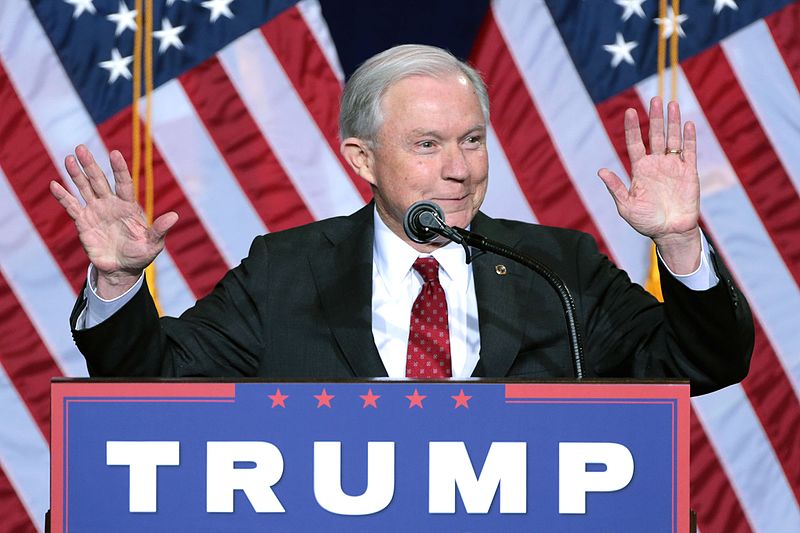
Attorney General Jeff Sessions announced last week that the Department of Justice will not defend the constitutionality of Obamacare. This is a major victory for the rule of law, as Obamacare is manifestly unconstitutional and disproportionally harms the most vulnerable in our society.
The DOJ declined to defend the controversial health care law against a legal challenge from Texas and 19 other states. Specifically, the DOJ is declining to defend two central tenets of Obamacare. First, the individual mandate tax, which forced people to buy health insurance and imposed steep penalties on the noncompliant. The DOJ argues that President Trump’s repeal of the Obamacare individual mandate tax means that the tax is no longer a tax, and is therefore unconstitutional based on Supreme Court precedent. Second, the DOJ is not defending the pre-existing conditions mandate on insurance companies, arguing that the provision cannot be decoupled from the mandate.
The individual mandate tax was the centerpiece of Obamacare. The individual mandate tax required a family of four to pay 2.5 percent of their income or $2,085 – whichever was higher. The tax required an individual to pay $695 or 2.5 percent of his income – whichever was higher.
The tax was one of the most regressive in history. 79 percent of households that got hit with the Obamacare individual mandate tax in 2015 made less than $50,000 a year. 37 percent of households made less than $25,000 a year. In total, 6,665,480 households paid $3,079,255,000 in individual mandate tax penalties in 2015.
Thankfully, President Trump eliminated the individual mandate tax when he signed the Tax Cuts and Jobs Act into law. And now, with Sessions announcing that the DOJ won’t defend Obamacare’s constitutionality against a recent legal challenge, the harmful law is as good as dead.
Trump has enacted free market health care reform in other ways. In May, Trump and Health and Human Services Secretary Alex Azar announced the administration’s American Patients First plan to lower costs and increase access to medicine. This plan rejects the broken and failed socialized system of health care that President Obama and his administration championed.
Instead, the plan addresses the underlying problems with our current health care system. First and foremost, Trump recognizes that Obamacare has increased health care prices through onerous taxes and regulations. Obamacare imposed a staggering $1 trillion in new or higher taxes. The law taxed everything from health insurance to prescription drugs to medical devices. The tax on medicine alone totals $30 billion over the next decade.
Throughout his presidency, Trump has rightfully taken foreign countries to task for taking advantage of the United States. Drug prices are yet another area where foreign countries freeload off of Americans. The United States has the only free market for medicine in the world. And yet, America is forced to subsidize its trading partners because of excessive foreign price controls. A recent study from the President’s Council for Economic Advisors said that the U.S. bears 70% of the world’s costs for medicine because of foreign price controls. In renegotiating America’s free trade agreements, Trump should focus on minimizing or eliminating foreign price controls.
Finally, several agencies within the Trump administration recently proposed a rule that would allow for more flexibility regarding short term, limited duration health insurance plans. These plans are stopgap measures for individuals transitioning between health insurance plans. The Trump administration increased the duration of these plans from three months to twelve months, ensuring that all Americans have affordable access to health care when transitioning between plans.
Ultimately, federal health care reforms should focus on patient-centered, free market solutions instead of failed top-down systems. The Trump administration has already made progress by dismantling Obamacare and elongating short term, limited duration health insurance plans. But there is much work to be done. Future reforms should emulate the success of Medicare Part D by using government forces to encourage free market competition and maximize access to health care.

